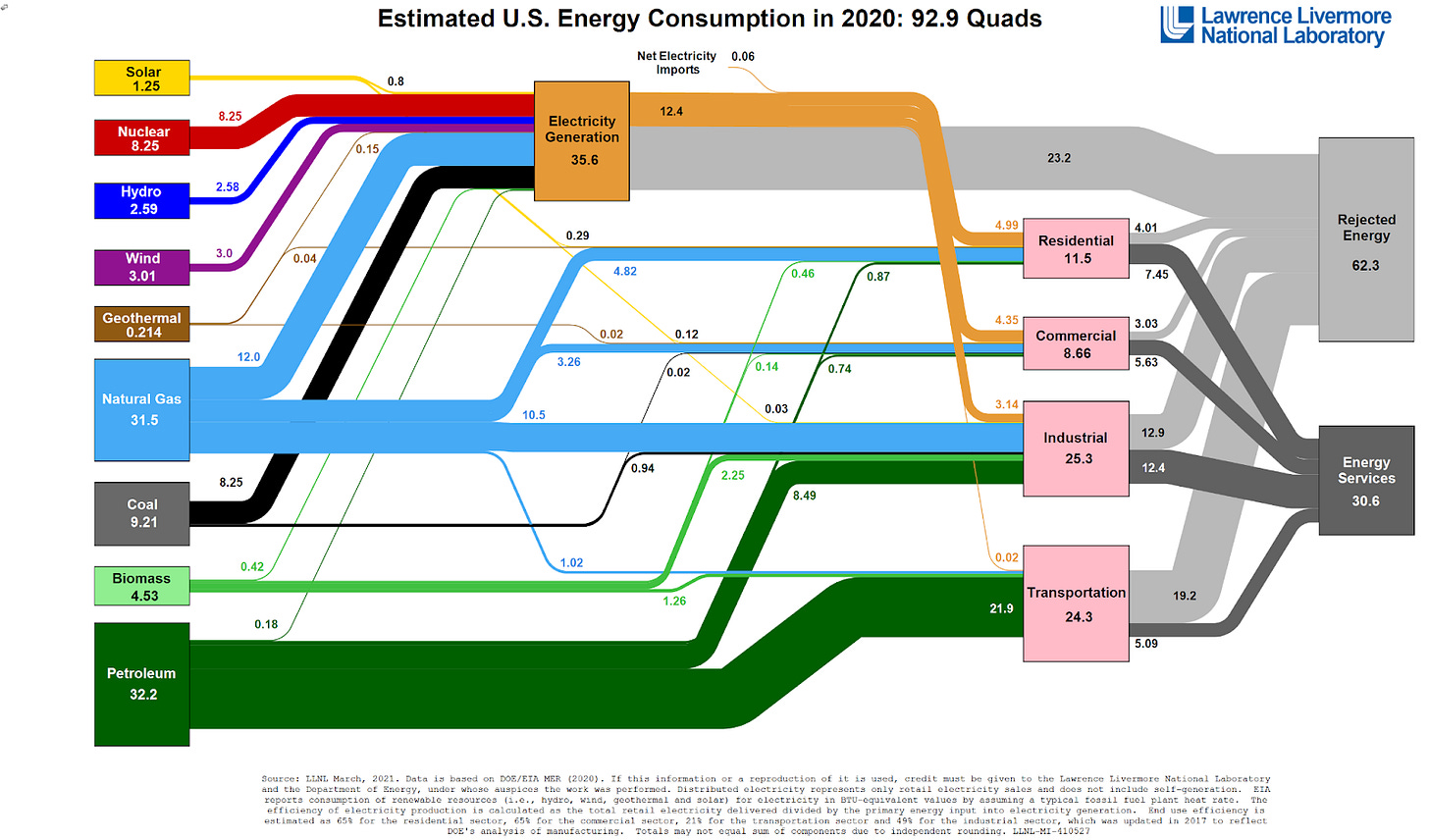Welcome to the Oil and Gas issue of The Polymerist. I like spending time understanding issues around the oil and gas markets because they tend to eventually influence most of the things we touch and feel on a daily basis at some point. If you are a longtime reader some of this stuff today might sound familiar, but you are seeing me refine my thoughts in real time.
This issue and the next 6 are sponsored by PolyAnalytik:
I vividly remember watching the vote to repeal of the Affordable Care Act and John McCain gave a thumbs down. The primary reason that I remember McCain going against his own party was because he thought there was no good alternative to take the place of the Affordable Care Act. I see this idea of no ready alternative in the oil and gas sector when it comes to stopping the things we do now.
I don’t see readily accessible alternatives to our oil and gas based chemicals at the price and scale capable of taking over as both feedstock materials and energy sources. Price and availability of oil and gas alternatives play a big role in if they get used or not. Propylene was once considered a waste byproduct, but after the Zeigler-Natta and Phillips catalysts propylene was being transformed into polypropylene.
I think we will have alternatives to oil and gas, but just not today and not next year. My guess is 2032.
Why The Petrochemical Industry Is So Strong
Right now, downstream oil products such as benzene, ethylene, propylene, xylenes, butadiene, and more are the foundation of not just our plastics industry, but a lot of the commodity chemicals as well. Chemicals are used in everything from concrete additives to personal care products to antifreeze. The amount of material we use on a daily basis that comes from oil is hard to describe. It’s anything we might view as a synthetic material. Even our natural materials likely have a coating of some sort on them that is based on the oil and gas sector.
The IEA estimates that 12% of all oil goes into making petrochemicals. In 2022 the IEA predicts that total oil demand will be 99,400,000 barrels per day. If we take 12% of that number for petrochemicals it’s 11,928,000 barrels of oil per day or 4,353,720,000 barrels of oil for the year, just to make petrochemicals. That’s about $335,236,440,000 of feedstock spent (at $77/bbl)—a relatively small number considering it’s for the world. Apple is worth $3 trillion. That’s the problem. Oil is cheap.
A bunch of stuff has to happen to make that crude oil actually useful such as distillation, cracking, and further chemical transformations. I’m not even counting the stuff we make from syngas here. These chemical transformations at scale are how the chemical industry creates the stuff that enables our modern lives. The American Chemistry Council and I agree here.
On the other side from the American Chemistry Council are the NGOs who claim to want to make the world a better place through policy initiatives such as banning single use plastics. These organizations are quick to point out the dangers, risks, and issues around using fossil fuels and plastics, but what are the alternative materials we should be using? More paper, glass, steel, and aluminum? Most life cycle analyses I’ve read discuss issues around increased weight and water consumption for these alternative materials. The idea of just stopping the use of plastics reminds me of the repeal efforts of The Affordable Care Act.
So who is right? I’d say both are right, but they both leave out important parts of the story.
A Word From My Sponsor
Things are kind of crazy right now in the job markets and sometimes the key person who knew how to run that specific analytical experiment is gone or the only person who knew how to maintain that critical piece of equipment got laid off in a round of cost cutting. This is where an analytical services company can really shine with deep expertise and PolyAnalytik knows GPC and polymers really well. If you are in a crisis and need help, consider reaching out to Thomas Gungor.
Different Parts Of The Same Story
Oil used to make our stuff is only one piece of the equation because we also need energy to do the chemical transformations. We typically supply this energy in the form of steam or electricity and we get that energy often by burning natural gas to boil water to create steam. Yes, we could wind/solar/geothermal, but there isn’t much to go around. The way we produce our energy to make our chemicals is also a problem:
Fossil fuels aren't just the feedstock for those reactions; they also provide the heat and pressure that drive them. As a result, industrial chemistry's use of petroleum accounts for 14% of all greenhouse gas emissions.
If we continue to operate as we do now then our future generations will probably experience some sort of great upheaval or time of chaos as the world changes. The movie Waterworld comes to mind or potentially something worse (not sure if anything gets worse than that movie, seriously, what was Kevin Costner thinking?). If we decide to just stop what we are doing we get the depths of the recession we experienced during the Covid-19 lockdowns of 2020, but worse. Both scenarios are unacceptable to me, but we definitely need to change and how we change is the sticking point.
Current oil and gas companies like Exxon or Shell know they need to change, but how much and how quickly they change is something they are trying to figure out. I can’t think of any industry the size of oil and gas that has pivoted successfully to some new way to generate revenue. No one has the immense amount of expertise out there on conducting these types of industry pivots.
Conversely, in reading the proposals by NGOs they read as if they were written by a luddite because how we do things now is bad for the environment, but should we go back to how we did things before? Just stopping our economy without a plan isn’t a solution nor is it good policy.
Solutions and Alternatives Take Time
I think that the long term answer to our problems is in both technological innovations such as a chemical company of the future, socioeconomic innovations that reduce our dependence on needing cars to do everything, and upgrading the energy efficiency of our buildings. To name a few. Some of these solutions require deep technical knowledge, patient investors, visionary collaborators, and luck while others are as easy as picking up the phone.
Getting better insulation and a better air barrier on a house or apartment building isn’t world changing alone, but it does help reduce the energy required to heat/cool a building. Do this at scale across the world and energy demand can actually go down. Organizations like Mass Save help residents of Massachusetts get insulation installed into homes that never had insulation when they were built for free or marginal cost to the homeowners. Mass Save also helps transition homes away from burning heating oil in the winter to heating with a heat pump that can also cool in these dreadfully hot summers we get in New England these days. It should be noted that plastics are used as components in heat pumps too.
We definitely need to transition the global economy away from oil, but it’s going to take time, a lot of effort by thoughtful people, and patience. The chart above is the 2020 energy consumption numbers from Lawrence Livermore National Laboratory. The solar, nuclear, hydro, and wind generation collectively still don’t equal natural gas or petroleum. It might take us a decade or more for energy generation capacity to reach similar scale to that of natural gas.
For many people there are no alternatives to how they live now. If a significant population of the US cannot afford a surprise $400 dollar expense then how are people supposed to install solar panels on the houses we cannot afford to buy much less get an electric car?
I’d love it if we could wave our hands to solve our problems, but these problems are deeply technical and take time not only to solve, but to scale. There are no silver bullets that can kill our problems in one shot. Our solutions to this problem of oil dependence exist out in the world in nascent technologies, start-ups, and ideas published in journals or written down in lab notebooks. We only started using oil seriously about 120 years ago and new technologies could overtake oil faster than it took for it to gain global dominance.
We need technically capable people starting mission driven companies to solve this problem. There are a people doing it now, but I think we need more shots on goal. When someone says there is no alternative to our fossilized carbon economy I want someone to educate them on all of the alternatives that are available.
Keep reading this newsletter, we are getting there.





thank you to a reader who corrected my math. I was off by just 3 orders of magnitude. So total spend on oil consumption globally is hundreds of billions or just a bit bigger than Elon Musk's assets.